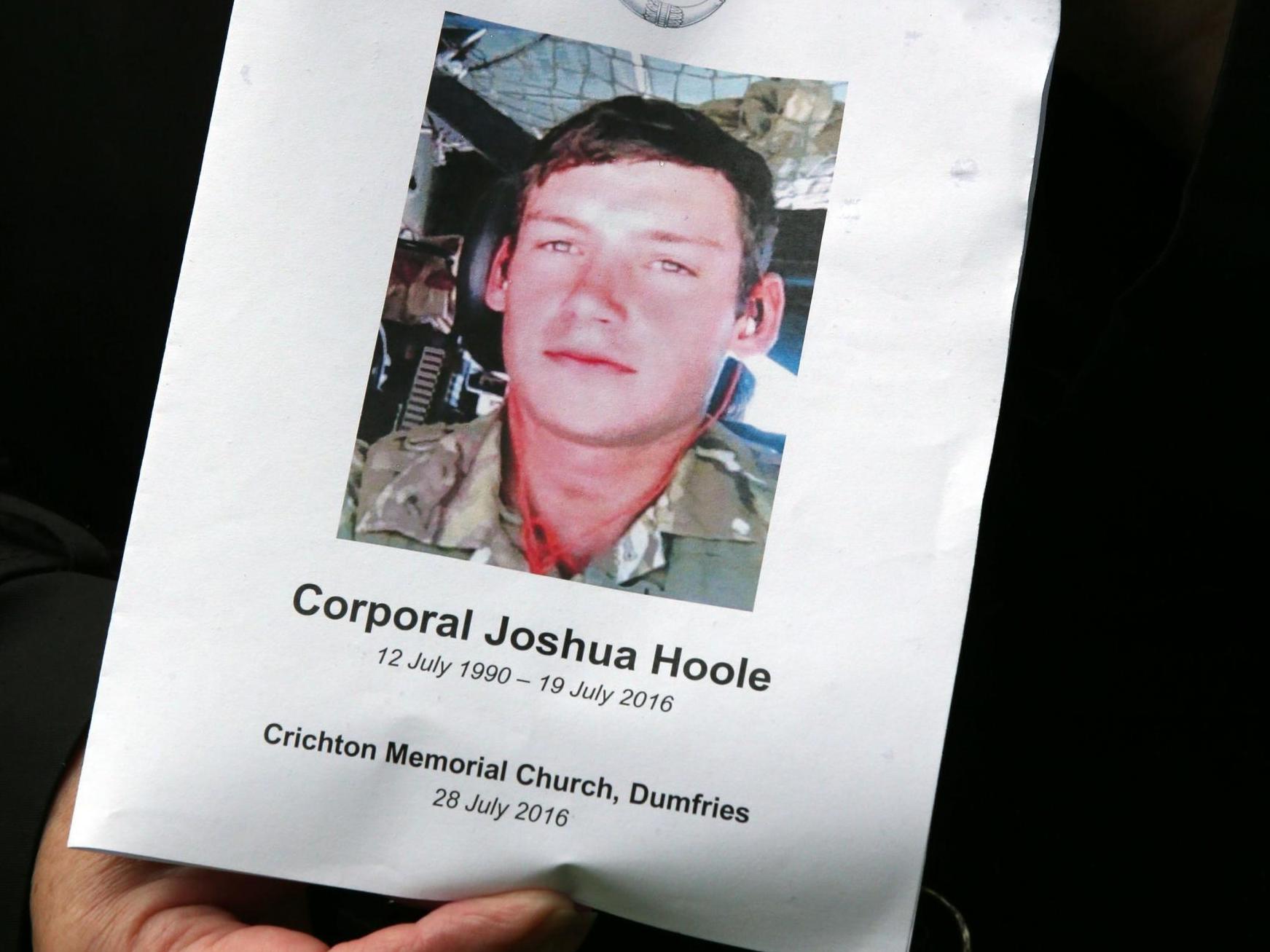Army’s ‘failure to learn’ from training heat deaths of ‘grave concern’, coroner rules
Coroner rules if training had ended 26-year-old corporal ‘would not have died when he did’

A coroner has pledged to write to the defence secretary after an inquest into the death of a soldier on a training exercise raised “grave concerns” over the army’s “ability to learn from previous mistakes”.
Corporal Joshua Hoole died after collapsing 400m from the end of an Annual Fitness Test (AFT) on the hottest day of 2016.
Described as “fit, capable and determined”, the 26-year-old had previously been deployed to Afghanistan and was serving in the 1 Rifles.
Senior Birmingham coroner Louise Hunt ruled the army’s decision to proceed with the training on one of the hottest days was one of the factors that led to his death – in an inquest that heavily referenced the death of three soldiers who died from the heat on an SAS exercise in the Brecon Beacons three years prior.
Highlighting the army’s “continuing” shortcomings in safeguarding soldiers training in high temperatures, she said: “There was a very serious failure on the part of the army to ensure the Rifles’ training team were familiar with improvements to [heat injury prevention guidelines] and how they applied to the AFT.”
Army Photographic Competition 2016
Show all 13The inquest heard that soldiers were aware it was to be “the hottest day of the year” and the march time at Dering Lines was brought forward as a result.
Of the 41 soldiers taking part in the march, 18 dropped out, collapsed or were withdrawn – a rate of 42 per cent.
The drop-outs included two with suspected heat injuries before Cpl Hoole collapsed.
Ms Hunt concluded the cause of death was a “combination of factors” recorded as sudden arrhythmogenic cardiac death associated with high cardiovascular workload due to exercise, heat stress and adrenaline burst from individual drive.
Ms Hunt said: “I am able to conclude, had the AFT not gone ahead or been stopped any time before 8.28am, before Josh’s collapse, on balance he would not have died when he did.”
However, she added that Cpl Hoole had an “underlying vulnerability, not previously identified, to a sudden cardiac event”.
Relatives of those reservists who died on the SAS selection march were also in court, alongside Cpl Hoole’s parents.
Announcing that she would be sending a report to prevent future deaths to Ben Wallace, the defence secretary, Ms Hunt added she was “very worried about the army’s ability to learn from previous mistakes”.
She added: “They need to think about how to learn from things that have happened because I also know there are others here feeling this very hard, knowing perhaps the only comfort they had from their inquest was something might change, and we’re sitting here and it hasn’t changed.”
Speaking after the hearing, Brigadier Christopher Coles said: “The MoD has acknowledged that aspects of the policy in place which governed the training Corporal Hoole was undertaking could have been better, and was, in areas, inconsistent. While much work has already been done to address this, we will seek to ensure that it is refined and improved to help ensure a tragedy like Corporal Hoole’s death is not repeated.
“While demanding training is always a requirement of army life, I am clear that reducing risk in all dangerous activity is essential.”
Additional reporting by Press Association
Subscribe to Independent Premium to bookmark this article
Want to bookmark your favourite articles and stories to read or reference later? Start your Independent Premium subscription today.

Join our commenting forum
Join thought-provoking conversations, follow other Independent readers and see their replies